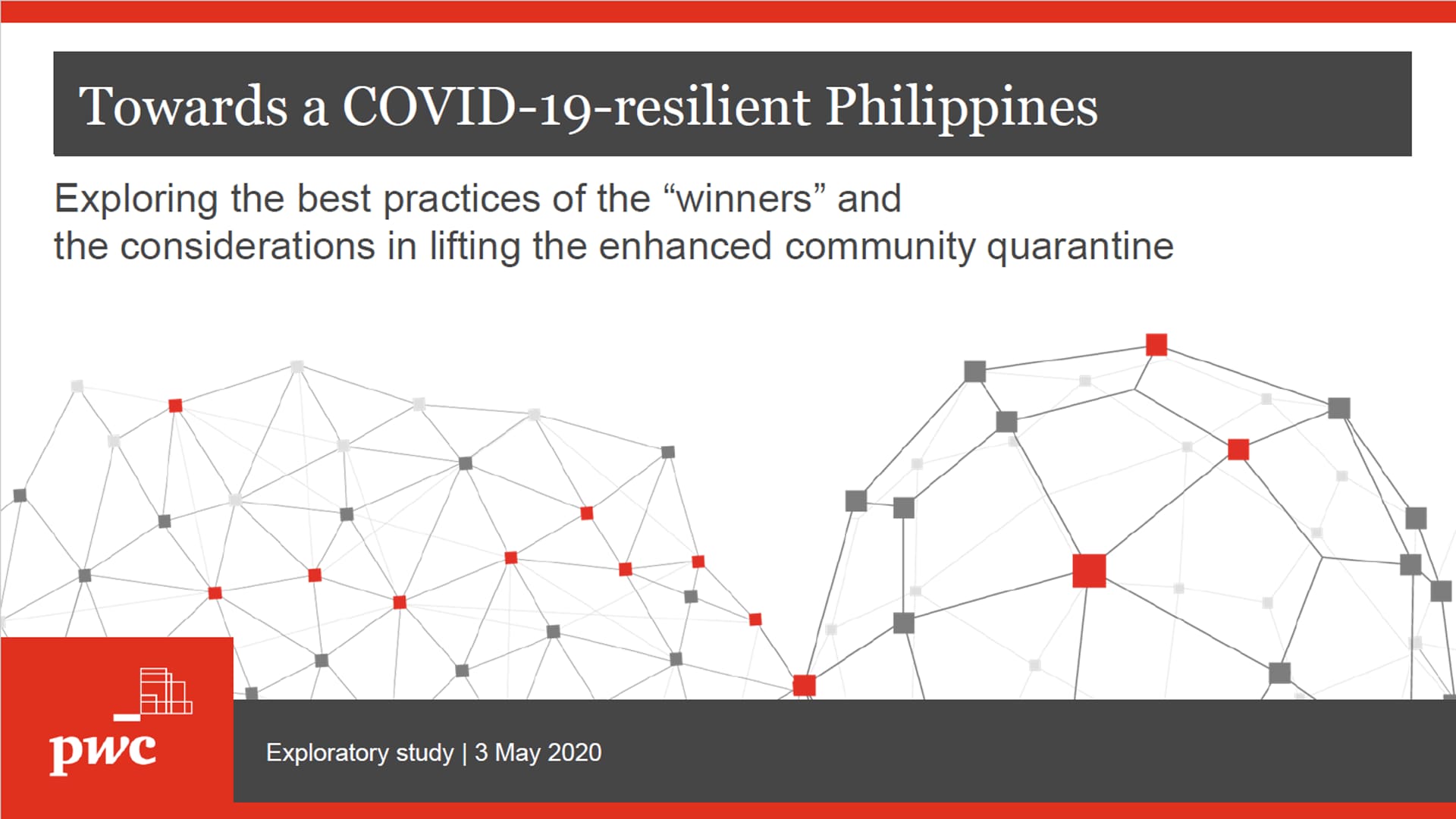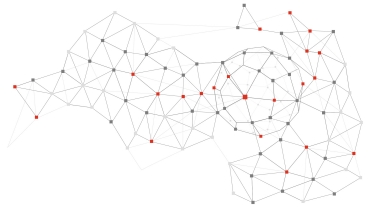

The COVID-19 pandemic has brought upon the world with challenges. Almost all countries had to shut down their economies to halt the spread of the virus and the Philippines is one of those countries who have taken strict measures by implementing the Enhanced Community Quarantine on 15 March 2020.
The lockdown did help in controlling the spread of the virus and apparently, the Philippines is already flattening the curve. The number of cases reported in the country is no longer growing at an exponential rate, however, flattening the curve does not necessarily mean that the Philippines is winning its battle against the pandemic. There are other measures to consider to ultimately say that a country is winning the battle.
The PwC Data Analytics team has gathered data and insights locally and around the world to come up with this study. It aims to show other areas that must be considered to know if the country is winning the battle against COVID-19, such as controlling the number of deaths, having real-time and frequent information dissemination, improving hygiene and sanitation, and conducting massive and optimized testings.
This study also intends to give policy recommendations on what the Philippines can do to become more resilient against COVID-19, especially with the plans of the government on modifying the Enhanced Community Quarantine to a General Community Quarantine. As PwC Philippines Chairman and Senior Partner Alexander Cabrera says, “We need to bring the economy back to life and we don’t need to die trying”. The pandemic is indeed a battle of every human and every unit of government, but to ultimately win this battle, the collective effort and solidarity of everyone are needed.
CAVEAT
The Dataset used in this study is as of 30 April 2020.
The content from this report is strictly for educational and research purposes only and should not be relied on for any purpose as it may not be free from errors. The limited data and data visualizations may be inaccurate in reflecting the complex, evolving, and heterogenous realities of different countries. Specifically, measurements related to the healthcare capacity of a country was not covered due to the lack of available data. Data such as the number of cases, deaths, recoveries, and tests may not represent the actual count due to delays in reporting from various sources. Overall, readers must take any insights with caution.
In addition, citing sources in this presentation does not mean that PwC endorses or recommends those publications or sites. Although PwC has taken reasonable steps to verify the accuracy and quality of information, it does not provide any assurance that the presentation contains complete and accurate information with respect to the topics discussed. Readers should also conduct their own due diligence on the matters covered and consult with professional advisers to an extent that is necessary.
Contact us

Mary Jade T. Roxas-Divinagracia, CFA, CVA
Deals and Corporate Finance Managing Partner, PwC Philippines
Tel: +63 (2) 8845 2728


Leilani C. Ramirez-Layug
Deals and Corporate Finance Executive Director, PwC Philippines
Tel: +63 (2) 8845 2728






